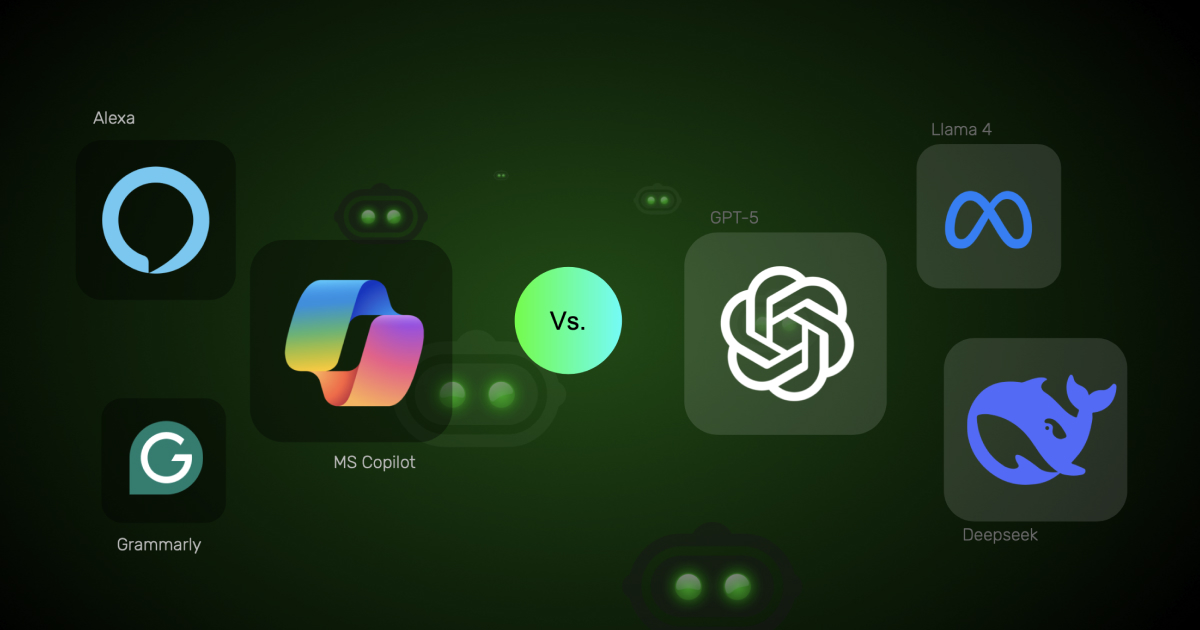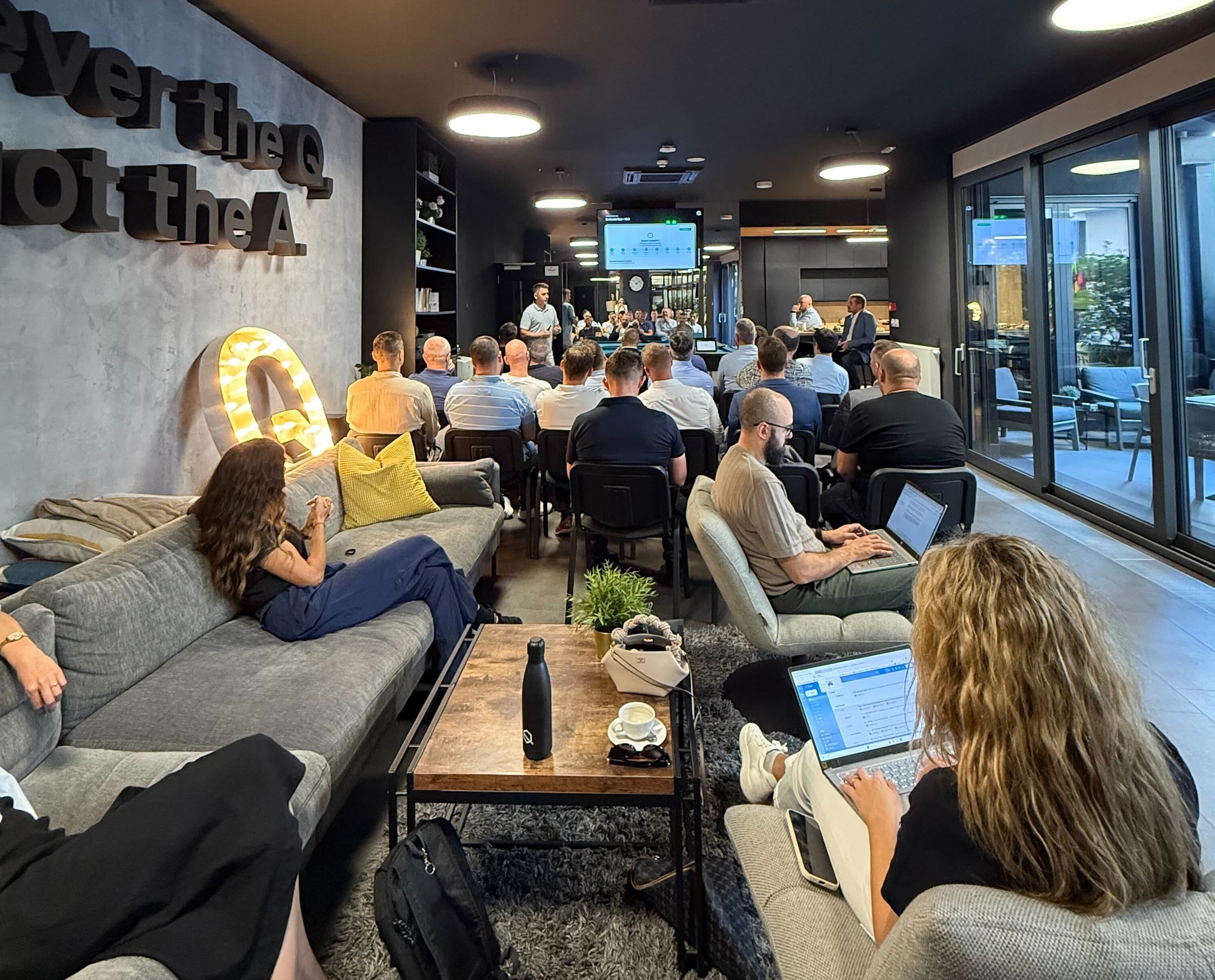September 17, 2025 - 3 min
AI Agents vs LLMs: What's the Real Difference in Enterprise Use?

AI agents vs LLMs — what’s the difference, and why does it matter for your business?
While large language models (LLMs) like GPT-5 are great at generating text, it’s AI agents that truly drive value in real-world enterprise scenarios.
This was the key theme at the first-ever Q Leadership Breakfast — an exclusive industry event where we brought together top leaders from different Croatian sectors to discuss how AI agents are transforming business operations and shaping the future of autonomous agents in software development.
Setting the Stage: Why Leadership, Why AI, Why Now?
The morning began with a welcome from our CEO, Harry, who introduced the series as a space for leaders to connect, share experiences, and discuss the role of AI in real-world business transformation.
This first edition focused on AI agents, a topic our community specifically requested. With McKinsey and Gartner both naming them among the top technologies for the next 3–5 years, and with EU regulations underway, the time to act is now.
AI agents are no longer just a trend. They’re enabling real gains in efficiency across pre-sales, resourcing, and customer support. More importantly, they’re forcing leaders to rethink team structure, autonomy, and responsibility in increasingly AI-driven business models.
From Buzzword to Business Value
Our Director of AI, Zlatko, showcased how Q is using AI agents in production — not just as tech demos, but as critical components of our clients’ digital transformation with AI.
Here are just three examples of how AI-driven business models are already creating measurable impact in Q:
- Travel Quotation Automation
What used to take hours is now done in under 5 minutes, thanks to 13 specialised AI agents that handle everything from anonymisation to price calculation. - AI-Powered Invoice Processing
By automating over 90% of the process, this system delivers invoice extraction and prediction with 85%+ accuracy, reducing time to just 2 minutes per invoice. - Estimation Tool for Software Projects
One of the newest tools in our AI toolkit, this GenAI-based estimation assistant can read documentation and produce project cost/time estimates in seconds. With advanced prompt engineering and domain-specific tuning, it significantly accelerates pre-sales workflows while improving accuracy and consistency.
Each use case clearly demonstrates that AI agents go far beyond what traditional LLMs can do — by adding memory, goals, planning, tool usage, and tight integration into business systems.

Q Leadership Breakfast
5 Key Lessons for Successful Enterprise AI Adoption
For companies looking to implement AI agents, here are the five most important takeaways from the event, with clear, actionable guidance:
1. Understand the Difference: AI Agents ≠ LLMs
LLMs are reactive — they generate responses when prompted. AI agents are proactive systems. They use LLMs as a base, but add layers on decision-making, memory, and actions. This makes them suitable for end-to-end automation, especially in complex enterprise workflows.
2. AI Readiness is Everything
Many AI agent initiatives fail because organisations don’t have AI-ready data, clear business goals, or defined success metrics. Before you start building agents, assess your internal systems, data quality, and team alignment.
3. Think Beyond the Pilot
A working prototype isn’t a success. Enterprises must plan from pilot to production, including architecture, data pipelines, compliance, security, and governance. Otherwise, even promising PoCs end up abandoned.
4. Build Trust and Transparency Internally
For AI adoption to scale, stakeholders must trust how AI decisions are made. That means clear communication, explainable outputs, and training for non-technical teams. A trusted system is an adopted system.
5. Start Small — But Make It Strategic
Don’t boil the ocean. Choose one high-impact, low-risk use case (like travel quoting or invoice processing), prove value, and scale from there. Tie every pilot to a measurable KPI and business outcome.
Want to join the next event or learn more about how Q implements AI agents in the enterprise? Let’s talk.
Give Kudos by sharing the post!





